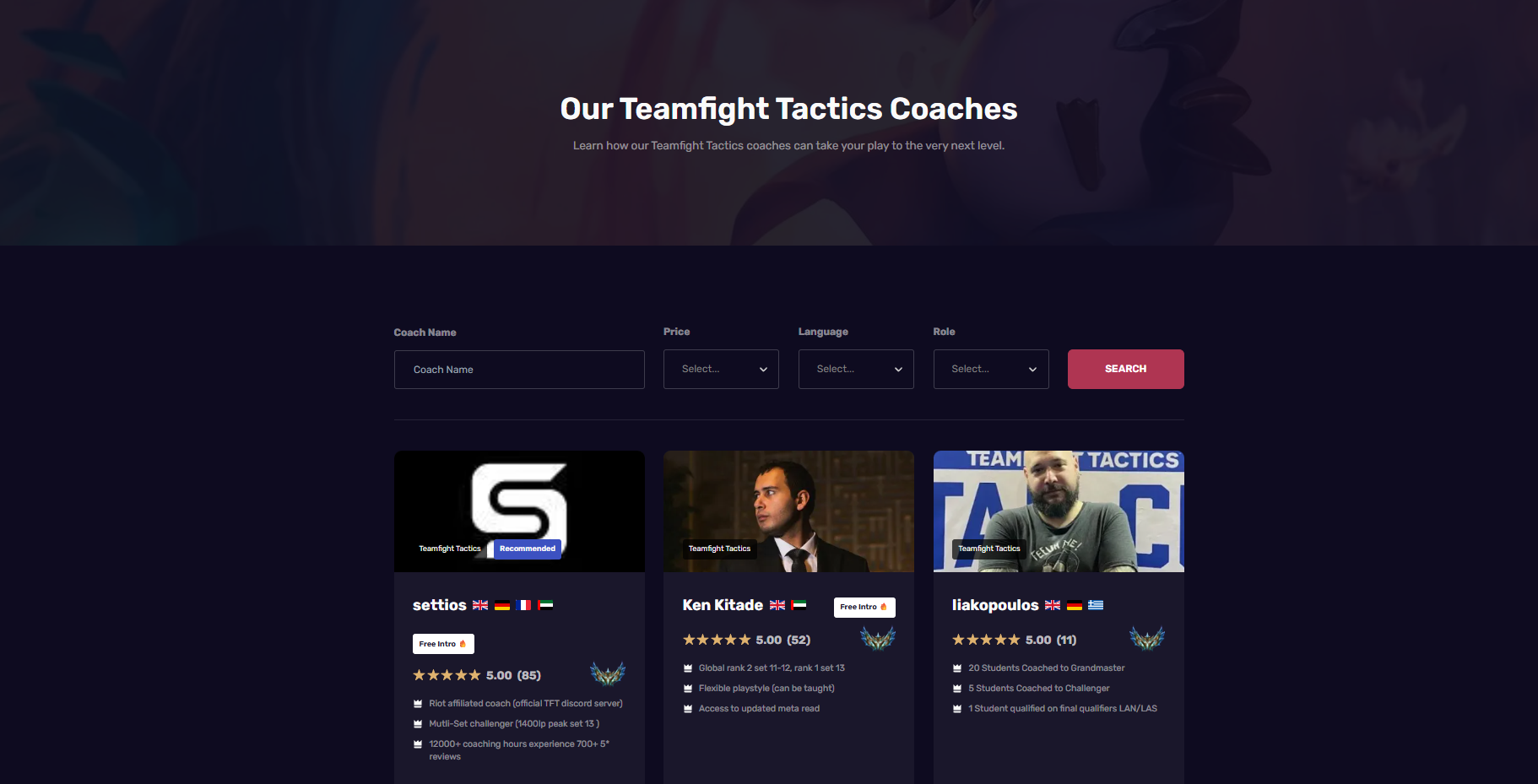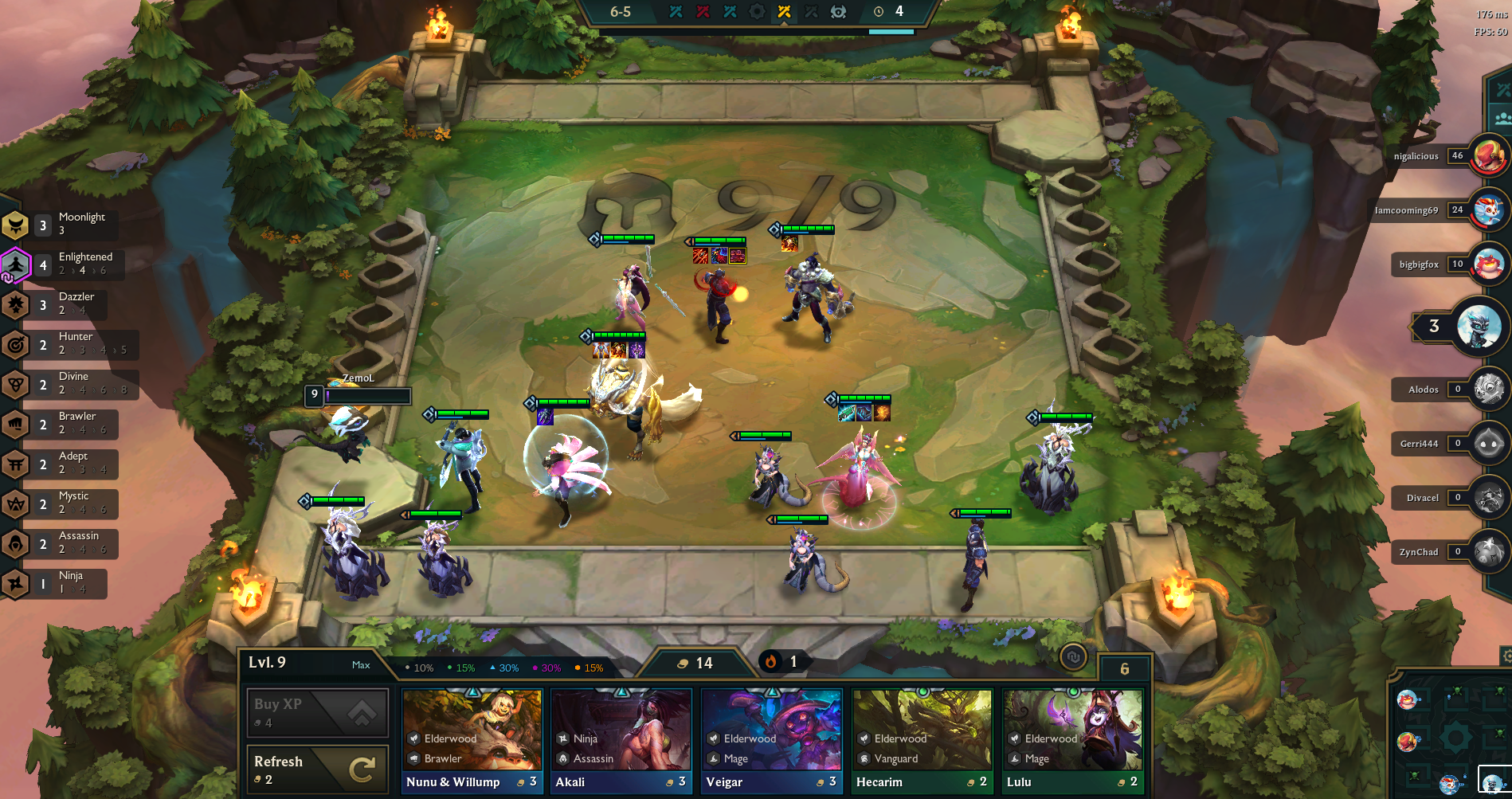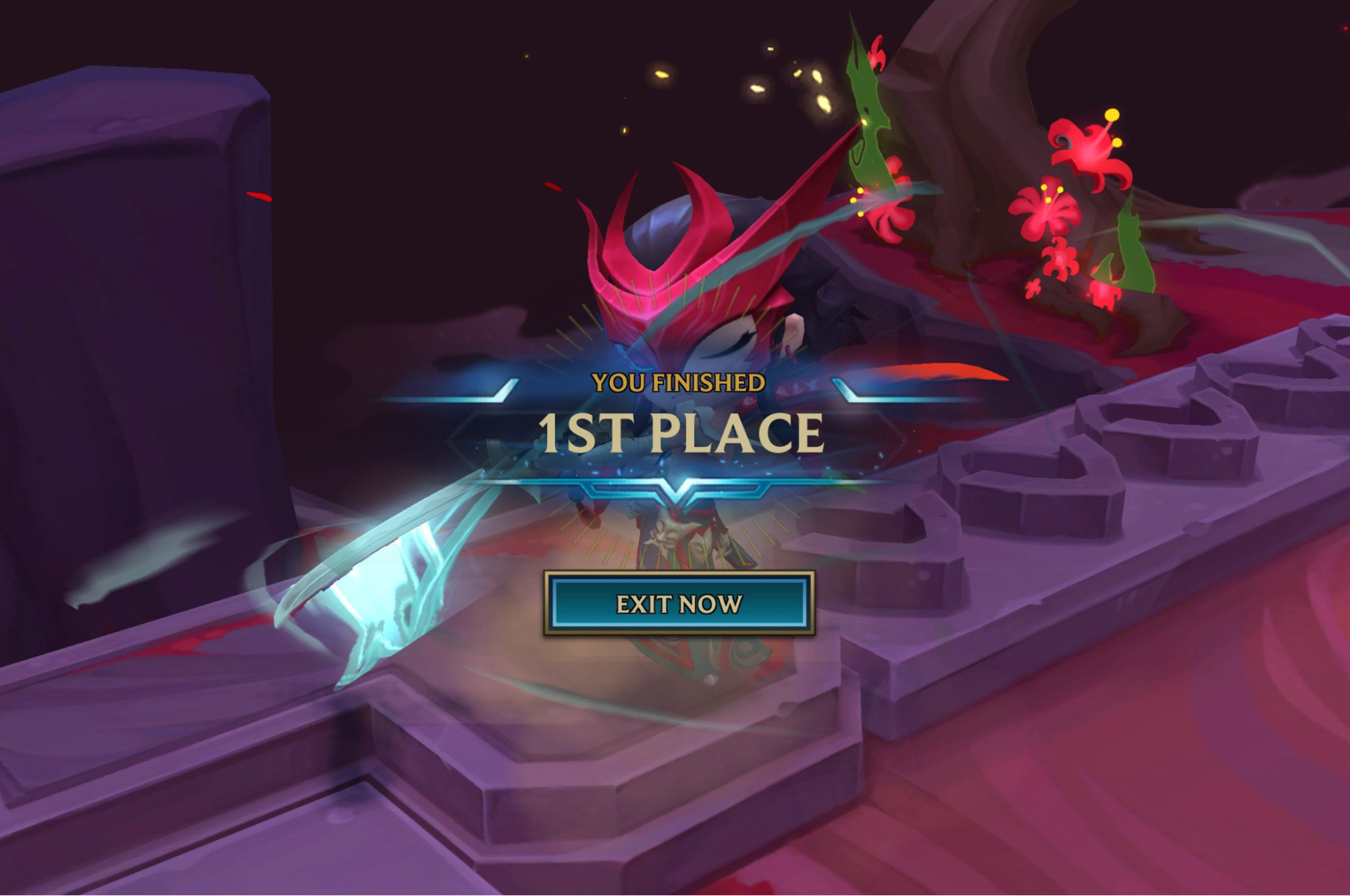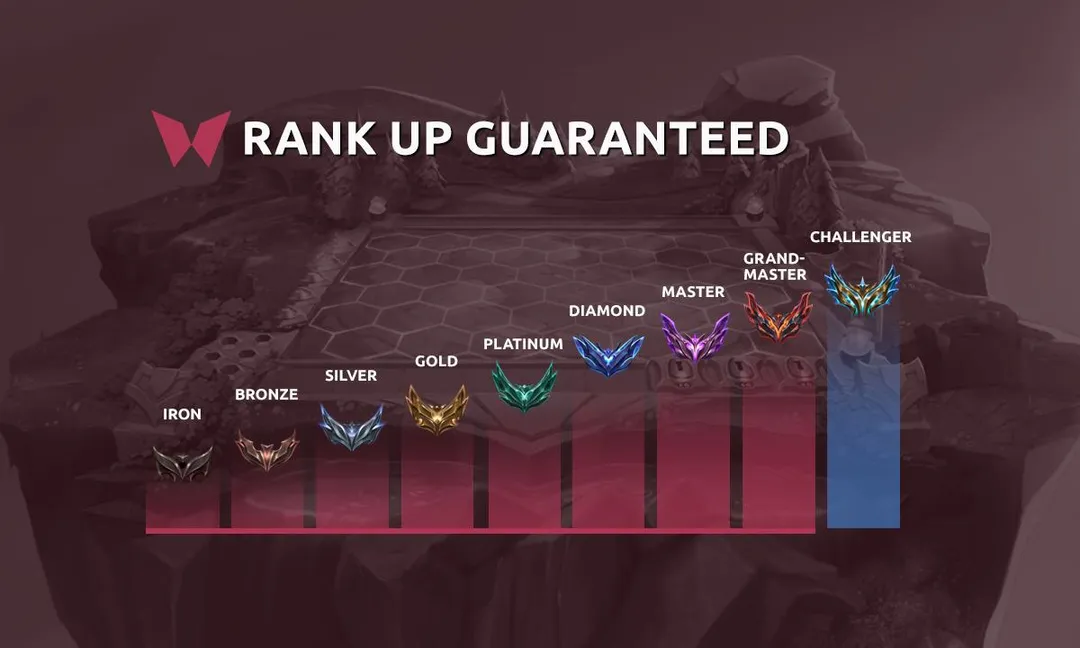


TFT doesn’t reward random decisions for long. The first few games might feel straightforward, but once the lobbies start tightening, placement comes down to the smallest reads, like when to push level 7, how to stabilize after a weak carousel, or to hold gold for the pivot or roll deep to save HP. Climbing past mid-rank means learning to track tempo, econ, and meta shifts while managing board strength at every stage.
WeCoach offers structured one-on-one coaching sessions for TFT players looking to sharpen decision-making and climb more efficiently. Pricing starts around $15 and goes up to $35 per hourly session, depending on the coach’s experience, peak rank, and format. Did we mention WeCoach offers discounted rates for booking bundle sessions, free introductory sessions, and ranked-goal-based boot camps?
Every coach is Challenger tier, and each brings their own system for session flow. Some focus on live breakdowns, others prefer VODs with follow-up notes.

Most hourly sessions on WeCoach sit in the $15 to $35 range. These usually involve a full game played live, streamed through Discord, with commentary and input given between rounds. Coaches pause to flag key decisions, like when you rolled on 3-2 instead of greeting Stage 4, why you positioned your tank line too far forward against a Shurima board, or how you lost tempo after winning a fight you should have used to level.
All WeCoach TFT coaches are Challenger and offer more structured prep ahead of the session. That might include pre-session scouting reports, personalized board-building frameworks, or review sheets that break down mistakes by stage. These sessions suit players who already understand the basics and want help converting top-four finishes into firsts, or who stall at the same LP range every patch.
Sound good? Head over to WeCoach to take a look at the Teamfight Tactics coaching.

Most sessions track Stage 2 through to the endgame, including opener strength, item prioritization, augment choices, and leveling windows. Coaches point out where tempo gets dropped or when gold gets spent inefficiently.
If you’re holding pairs and praying for a hit every round without thinking about board strength, that gets flagged. If you’re scouting too late and missing the moment to pivot comps, they show how that slips your win streak.
Positioning comes up constantly, and late-game fights often flip on which unit tanks aggro first or if your carry avoids key AoE. Coaches review these fights frame by frame, pointing out the missed hexes and ability targeting patterns that led to the board break. You don’t always see it during the match, and that’s why the review matters.
Econ strategy also gets unpacked because a lot of players float between slow rolling, fast 8, or pivoting without a clear reason for each. Coaches show which patches favor early spike comps and which reward greed. More importantly, they help reinforce consistency, playing for tempo when it’s available, sacrificing HP when needed, and knowing how to manage streaks rather than chasing outs.

The best use of coaching time comes from being specific. Before booking, most players pick a coach based on preferred comp pool, peak rank, and communication style. Reading their bios helps with matching you with the right coach.
Sessions move faster when you bring context, like sending a VOD ahead or sharing a few screenshots from recent losses to help the coach prepare. That means less time warming up, and more time addressing the real problems, like why your board falls apart at 4-2 or why your HP drops fast despite a strong opener.
Players can book a single session to fix something specific or book in bundles to build a learning path across patches. Either way, the cost stays tied to the experience level of the coach and the clarity of the session.

Coaching guarantees results by offering a targeted review, habit correction, and structured gameplay planning. Instead of queuing blindly and reacting to the shop every turn, players come away with timing frameworks, reroll setups, and stage-by-stage goals that tighten decision-making over time. Typically, a player ranks up by two whole divisions after a single session.
WeCoach pricing reflects the gap between casual advice and high-level breakdowns. The cost sits lower than most traditional coaching spaces, but the format hits the same goal of turning each lobby into a TFT gaming experience you can learn from.

Roger is an esports journalist and content writer specializing in League of Legends guides, patch analysis, and coaching insights.
View all articles